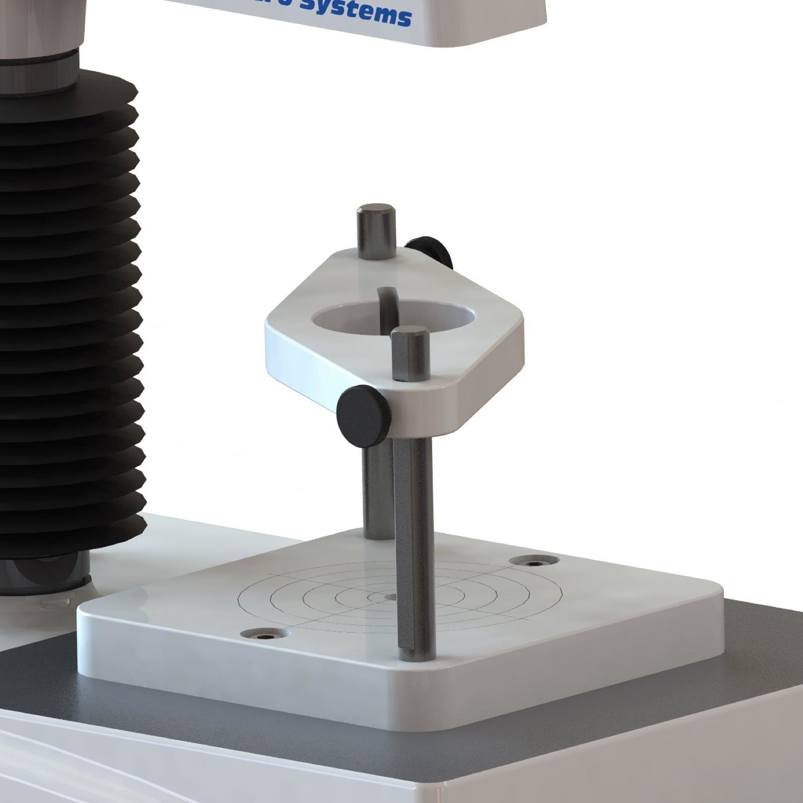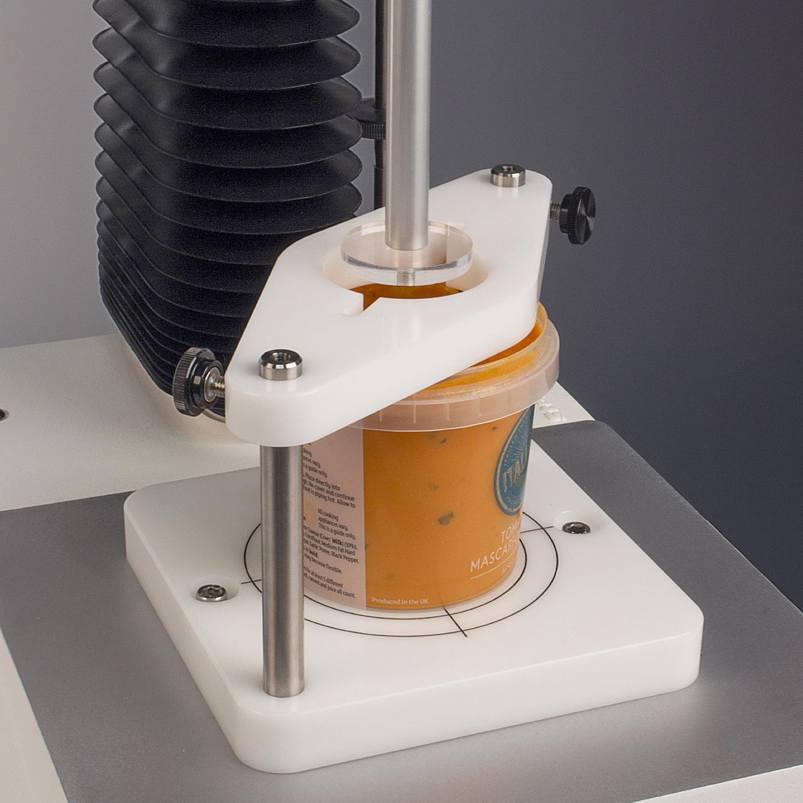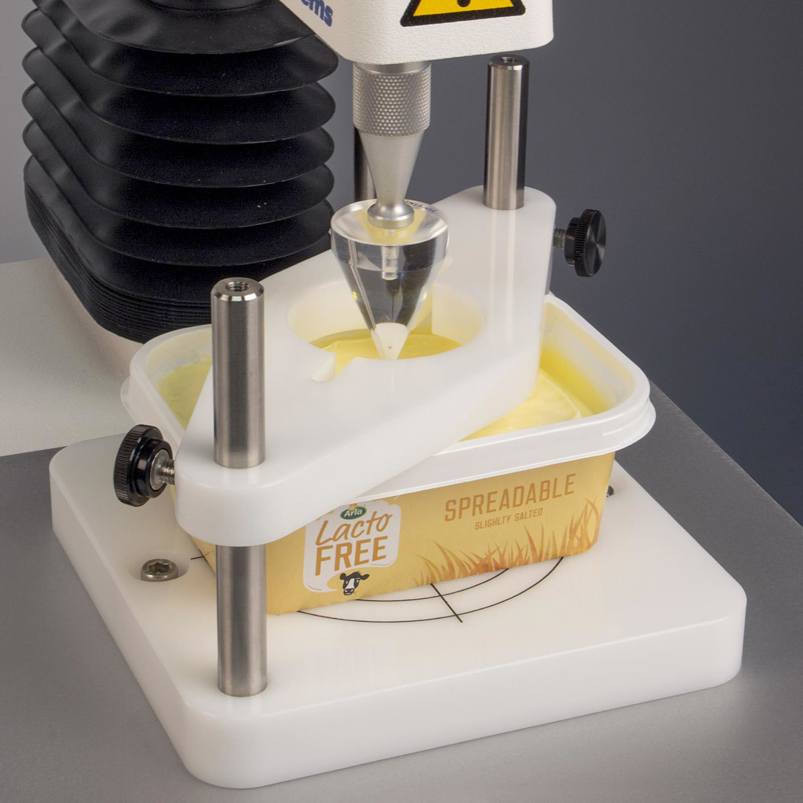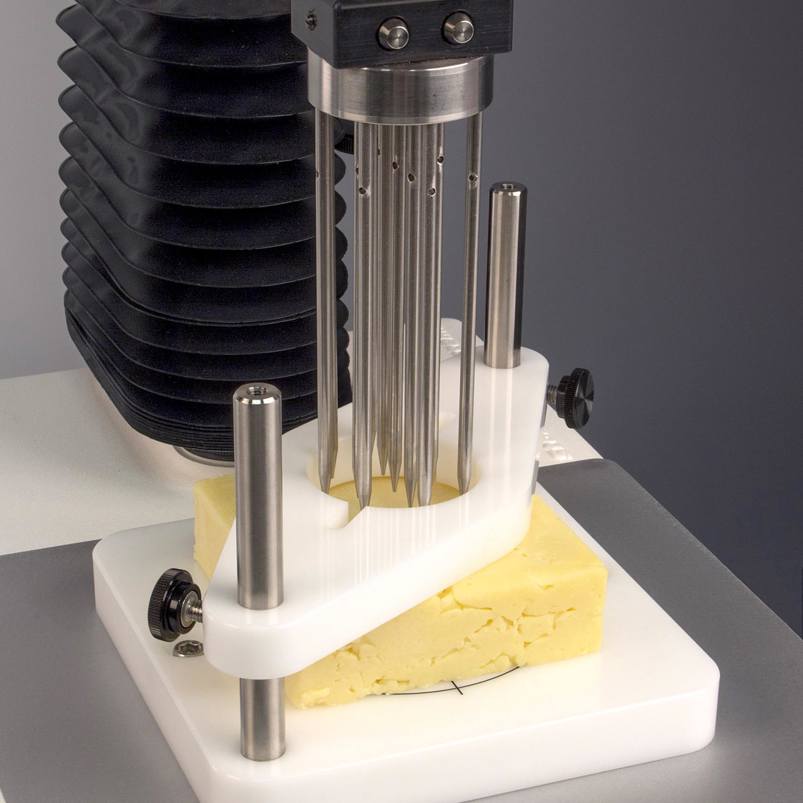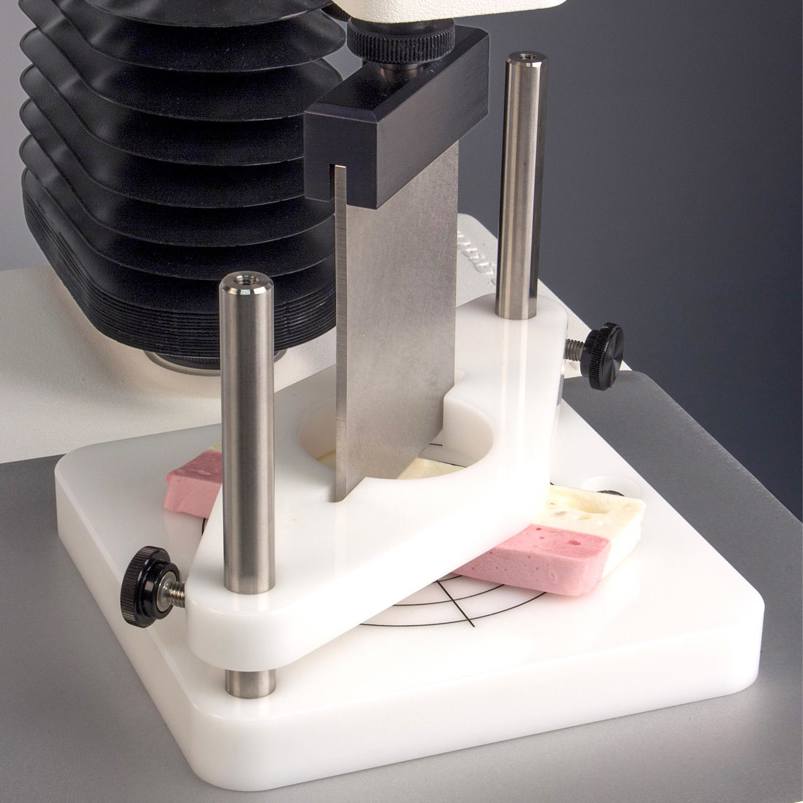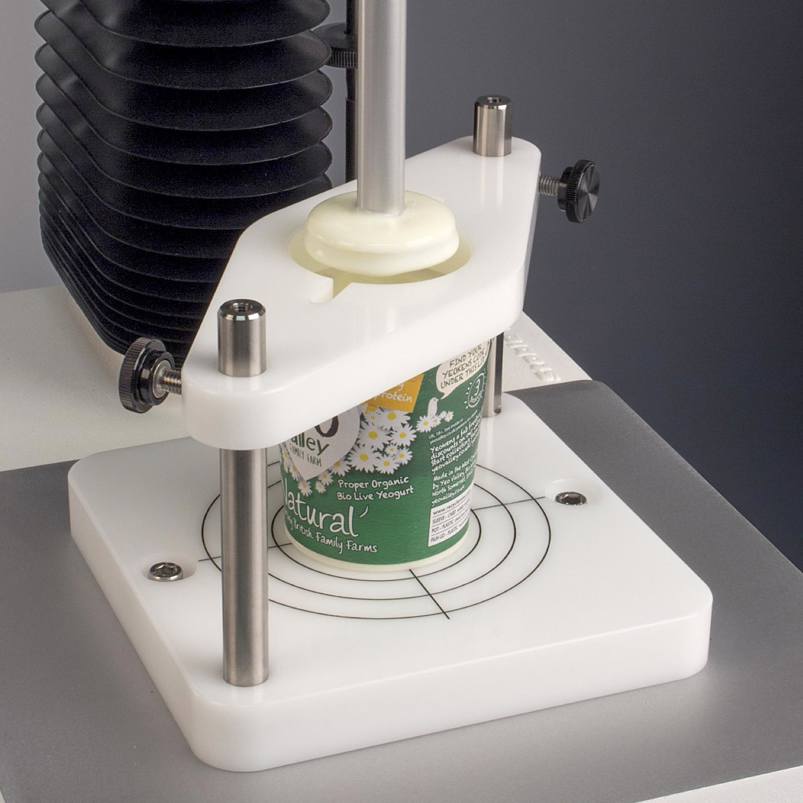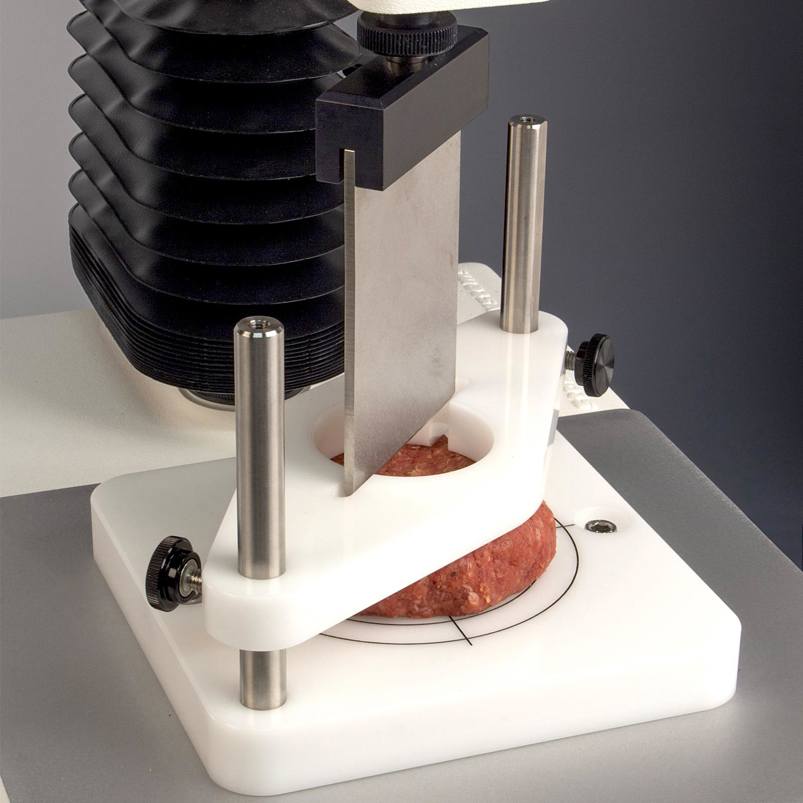Product overview
When penetrating, extruding or cutting a sample during a test it is common that the sample sometimes needs to be held down manually in order to avoid it being lifted up with the withdrawing probe or attachment. The penetration of a margarine sample, the cutting of a piece of meat or the backward extrusion of a thick moisturising cream are typical examples when this may occur. The resulting measured forces of this occurrence will be displaying the weight of the material (and/or its supporting packaging) being lifted rather than the forces necessary to withdraw from the sample. If lifting of the sample occurs the graph that is obtained will not therefore reflect the entire true textural profile of the sample.
To assist with this problem we have a Universal Sample Clamp. This clamp is able to hold down a multitude of sample types, shapes and sizes, including the packaging which may contain the sample. The sample is placed on the base of the clamp. In the case of circular samples, the concentric rings will provided a means of central placing of the sample or its circular container. The top clamp can then be lowered down onto the sample and secured at a suitable clamping position using the post screws. A circular orifice provides suitable access for a probes/extrusion discs up to 50mm in diameter, whilst the linear hole running through this provides access for a standard blade. The clamp has been designed to sit diagonally on the base of the instrument to optimise the available space under the orifice for maximum sample size flexibility.
Technical information
Installation
Full installation instructions are provided within the Education Zone of the latest Exponent/Connect software version and on the technical information sheet accompanying this product.
Chemical compatibility
Stable Micro Systems probes and attachments are commonly made from four materials: anodised aluminium (AA6082 T6), stainless steel (316 T), Delrin (acetyl copolymer) and Perspex (polycarbonate).
In general use, probes and attachments made from these materials will be suitable for testing food products and inert non-food materials.
The four materials listed above are not universally resistant to all types of chemicals and as such the compatibility of the probe/attachment material with the product (to be tested) must be established to prevent damage to the probes and attachments. If the compatibility of the product with the probe is unknown to the customer then the chemical information about the product (Material Safety Data Sheet or Product Data Sheet) should be submitted to Stable Micro Systems. Stable Micro Systems will then assess the suitability of the probe/attachment material for use with the product and advise accordingly. If this advice is not sought then Stable Micro Systems will not accept liability for probes/attachments damaged by chemical attack from the product being tested.
Cleaning and maintenance
All probes and attachments may be cleaned in warm (or hand hot) water using a mild detergent. A soft brush may be used but abrasive cleaning aids should be avoided. Stable Micro Systems products should not be microwaved or cleaned in a dishwasher.
Screw threads should be lightly lubricated after drying using a light lubricant, e.g. petroleum jelly, mineral oil. This will aid the fitting and unscrewing of the item. Each component of a probe or attachment should be wrapped separately when stored, to avoid scratching or chipping. This will safeguard against any unnecessary damage to the accessory.

